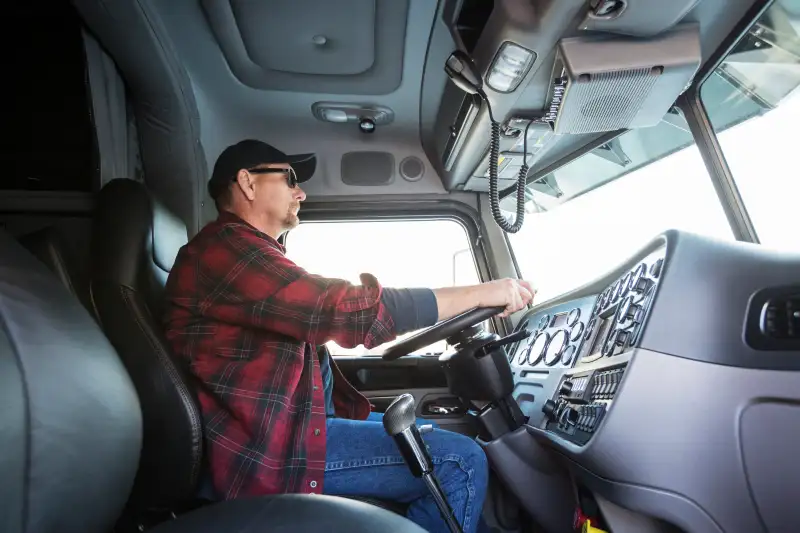How Trucking Went From One of the Best Jobs in America to One of the Worst

In 1980, the average trucker in America was making an annual salary, adjusted for inflation, equal to more than $110,000 today. Twenty-five years later, truckers make on average about $40,000 a year, working harder, longer hours, and with less job security.
Sociologist Steve Viscelli, in an article published Tuesday in the Atlantic, describes how truck driving—once a blue-collar job with good benefits, relatively high wages, and considerable political clout—today is just the opposite. Following deregulation of the trucking industry in the late 1970s, during the Jimmy Carter administration, competition among truckers increased and compensation fell as commonly set rates went by the wayside. At the same time, the once legendary clout of truckers' unions (the Teamsters, a name synonymous with union power, was originally a truckers' union) began to disintegrate along with the political influence of unions throughout the country.
Viscelli blames the decline of trucker fortunes on the rise of independent contracting—an arrangement wherein trucking companies outsource many of the risks and costs of trucking to truckers themselves while declining to pay for benefits, all while advertising the arrangement as one that empowers truckers as small business owners. But the reality can be anything but empowering. Viscelli notes that some contracts in which truckers lease their vehicles from companies bind them in an kind of indentured servitude until the full cost of the lease is paid. In some cases, a trucker who wants to switch companies or leave the job might be hit with a bill of as much as $65,000.
With long hours (many of them unaccounted for labor, since truckers get compensated primarily for driving time but not time spent on paperwork, filling up a gas tank etc.) and extended stays away from home with little human contact, all for an income that tends to hover at or even below minimum wage, trucking is a particularly difficult industry. But many of the challenges faced by truckers are shared by the growing segment of the labor force classified similarly as independent contractors. Most notably of late, Uber drivers have been organizing and suing the taxi company over what workers claim are unfair labor practices.
The relatively low pay and long hours in the trucking business may be the reason for the substantial shortage of qualified truckers in the United States today. To address the driver shortage, the American Truckers Association recommends “increasing driver pay, getting drivers more time at home, as well as improving the image of the driver and their treatment by all companies in the supply chain."
